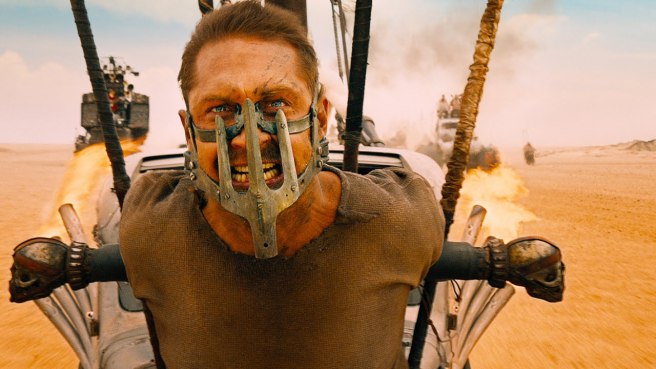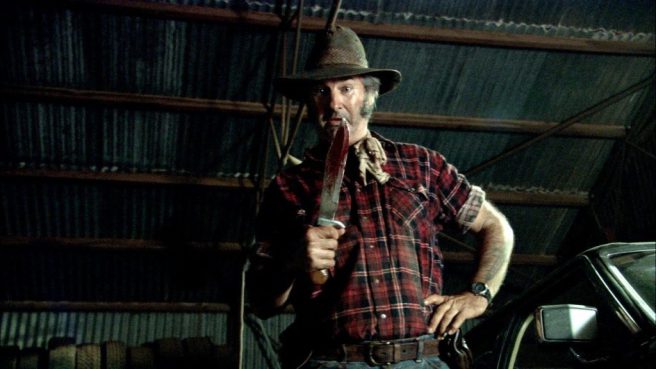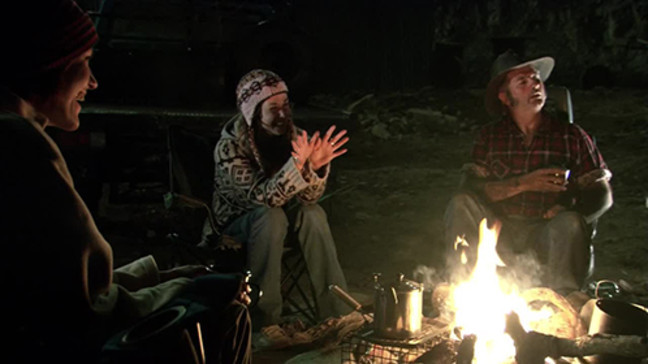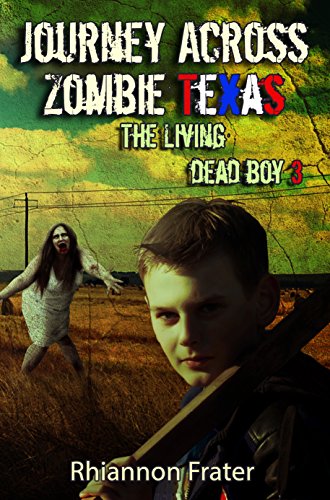While ostensibly Wolf Creek may appear to be a typical piece of exploitative, grindhouse horror, there’s more going on under the surface of Greg McLean’s debut feature than one might imagine. It plays with your knowledge and understanding of horror movies and to some degree science-fiction, suggesting the narrative may be heading one way when it moves in quite another. McLean seems acutely aware of the narrative and cinematic touchstones his film is playing with, which gives Wolf Creek an edge when it treads territory familiar to anyone who has a grounding in specifically American slasher horror.
It’s a film which feels very much like it knows the gallery it’s playing to, appreciates and doesn’t take for granted its audience. McLean manages to craft a film at once familiar and at the same time unnervingly alien, which ends up being a key descriptive when it comes to Wolf Creek. The desolate, arid, unexplored plains of Australia feel like the *other* main character in McLean’s picture, given form and character by the haunting way the writer/director captures his landscape. Australian cinema isn’t immediately characterised by this kind of vicious, bloody horror fiction.
When you think of cinematic portraits of Australia, characters like Paul Hogan’s Crocodile Dundee undoubtedly spring to mind, or exuberant directors such as Baz Luhrmann producing loud, colourful pictures. There has always felt an ironic playfulness about Australia in cinema, perhaps even a mockery of the steadfast earnestness of American cinema, with its stock heroes, or classic British film and the upper class gentry. Australia always seems to have its tongue firmly placed in cheek, ready to cast a laid back, acerbic eye over storytelling which takes itself too seriously. Even when directors such as George Miller have indulged action theatrics more commonly associated with Hollywood with the Mad Max quadrilogy, all of them retain a vibrant eccentricity which leaps off the screen, from oddball characters to manic comedy.

Australian creatives perennially don’t seem capable of that same level of straightforward earnestness we see in more traditional action or comedy cinema – they’re on the outside, peering in, again akin to aliens glancing over and trying to figure out what the rest of us are up to. Wolf Creek does and doesn’t fit the same pattern, hence why perhaps McLean’s film still resonates with fans a decade on. When in line with Australian cinema at large, it perhaps in places has more in common with pictures such as Peter Weir’s Picnic at Hanging Rock, which held at its core a central mystery about young people who vanish, despite being set in a very different time period and textually playing in a hugely different wheelhouse. There’s a good chance Weir is one of McLean’s antipodean cinematic touchstones though, as Weir in his Australian based films has always steered away from what traditionally may be recognised as the same eccentric self-deprecation and absurdity we see in a lot of other Australian films. McLean wants to make us fear his landscape and his country.
Though Wolf Creek isn’t based on a true story, it’s opening legend wants to make you feel like these events happened, or could have happened, and parallels have inevitably been drawn to the murders of Bradley Murdoch and the backpacker killer Ivan Milat, both of which occurred around the same time frame. Inspirations, perhaps, for a director who wants us to feel the expanse of Australia and the unknowable sense of an alien landscape from which, should we find ourself lost, there may be no escape. That’s the true horror underpinning Wolf Creek.
On the face of it, said horror is actualised by the character of Mick Taylor, the memorable psycho killer at the heart of McLean’s story played by John Jarratt. Mick feels like a very deliberate inversion of what we expect from an ‘Aussie’ – practical, loud, jokey, familial, a little boorish, and straight talking. The kind of guy who could fix your car while chugging a beer, slap you on the back, and head off for a barbie. McLean wants you to be taken aback by that false sense of security when it comes to Mick, so by the time the two British backpackers and young Australian travel guide who play victim to him realise the true horror facing them, you’re a little unprepared for it.

McLean front loads Mick with a terrifying level of casual sadism; from intended, open sexual assault; hanging severed torso cadavers inside his abandoned warehouse; picking off his victims from a distance with a high range rifle–in broad daylight indeed–like a big game hunter, Mick is both an actualised level of alpha male bravado and a genuine, impossible to fathom monster. The sequel makes Mick the central character and McLean even co-wrote origin novels about the man, but you almost don’t want to know – the clear enigma of Mick, the alien nature of who he is and why does such terrible things, is both far scarier to the audience and allows for a much clearer parallel to the cinematic iconography of the world Mick inhabits. He is as unknowable as the open, desolate plains of middle Australia, both of which are ready to consume the unprepared traveller whole.
This comes back to one of the central pieces of subtext in McLean’s script – what ‘Wolf Creek’ itself is and how it allows McLean to try and upend our expectations. In the story, ‘Wolf Creek’ is a famous site of a meteorite crash which left a powerful gouge in the remote Australian wilderness, based on the real-life ‘Wolfe Creek’ in northern Western Australia, the second largest meteorite crater in the world (aerial shots in the film show the real crater). Backpacker Ben openly discusses how the crater site has been privy to UFO sightings over the years, with reports of cars being buzzed by lights in the sky which caused engine failure.
McLean has his characters try and lead us down the garden path toward wondering if this won’t be an alien abduction story, and these characters may be menaced by extra-terrestrial creatures meant to do us harm, but in the end McLean wants us to understand who the real aliens are – not beings from another planet, drawn to Earth by the raw magnetism of a crater formed by a powerful, unknowable force from the heavens, but us. *We* are the aliens in McLean’s story. Travellers completely unprepared for a hostile, alien environment and the monster lying at the heart of the maze, with the face of a benign, familiar and almost frequently lampooned visage of masculine Australian culture. Wolf Creek by the end feels almost akin to a cautionary tale.

The message is not one that will feel new or unfamiliar to fans of the horror genre – youth coming into contact with an older force which utterly overcomes and consumes them, taking advantage of their innocence and certainty in the laws of the universe they know. Wolf Creek, however, is one of the nastiest and uncomfortable examples in horror, exploitation cinema of recent years to repeat this trope and manages to successfully create in Mick Taylor an Australian boogeyman to fear, which taps neatly into expectations of what makes an Australian man and subverts them in a ghoulish, bloody and quite nihilistic manner.
There is no hero in Wolf Creek, no victor, no salvation, no law and no consequence. There is just the open road–indeed one tense, suspenseful sequence toward the end feels like it’s taking a cue from Steven Spielberg’s psycho thriller Duel–and the vast, harsh, alien desert. Go looking for the unknown, for the cosmic, at your peril. For if you stray off the beaten path, Wolf Creek warns, you may never find it again.
Advertisements Share this:





